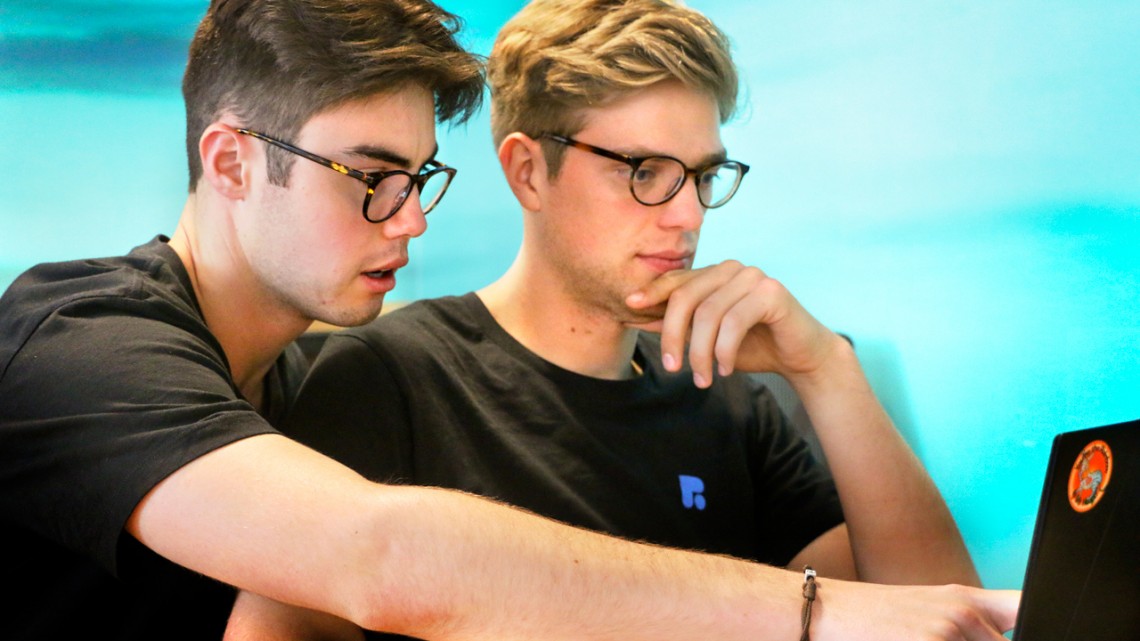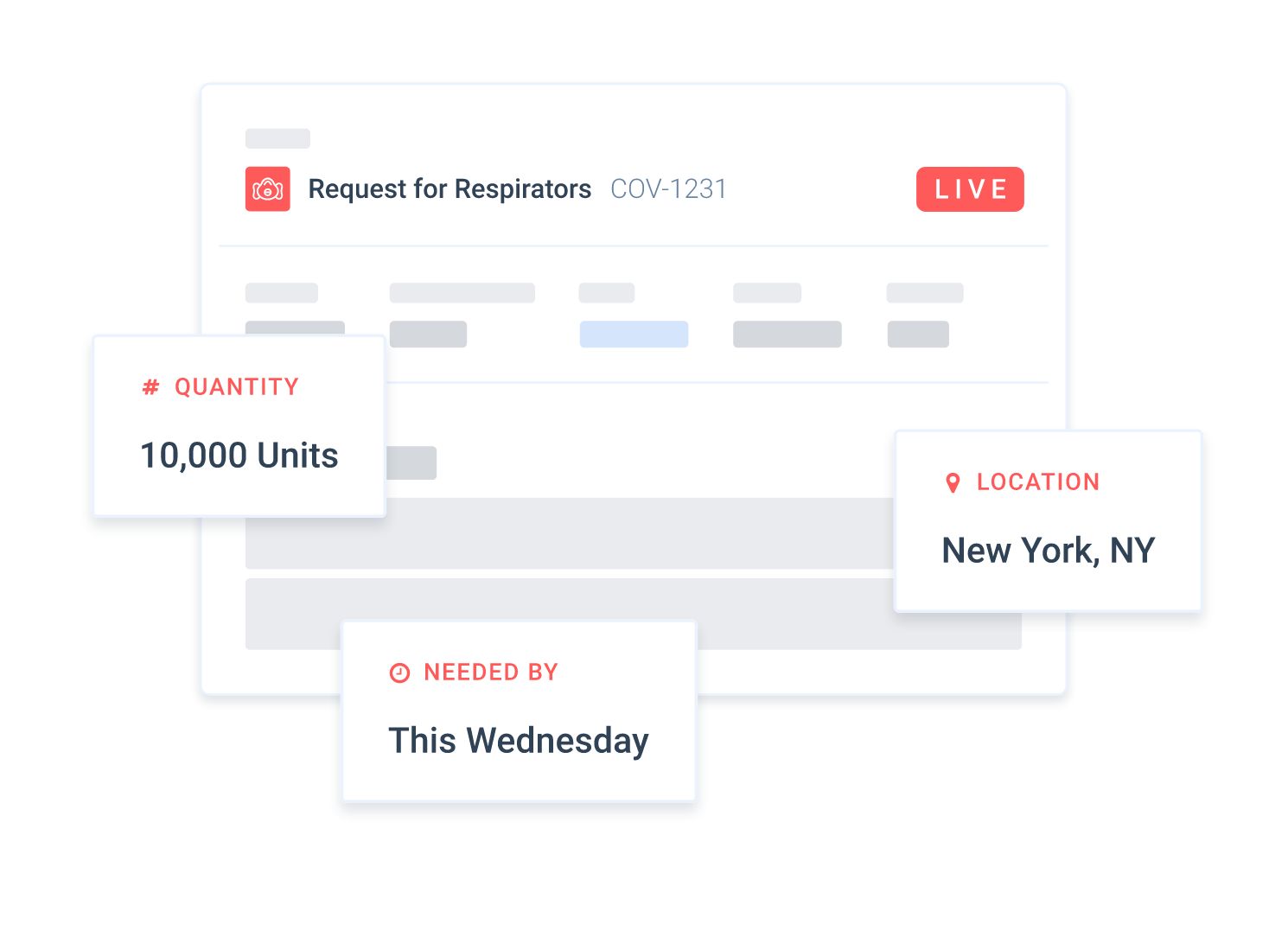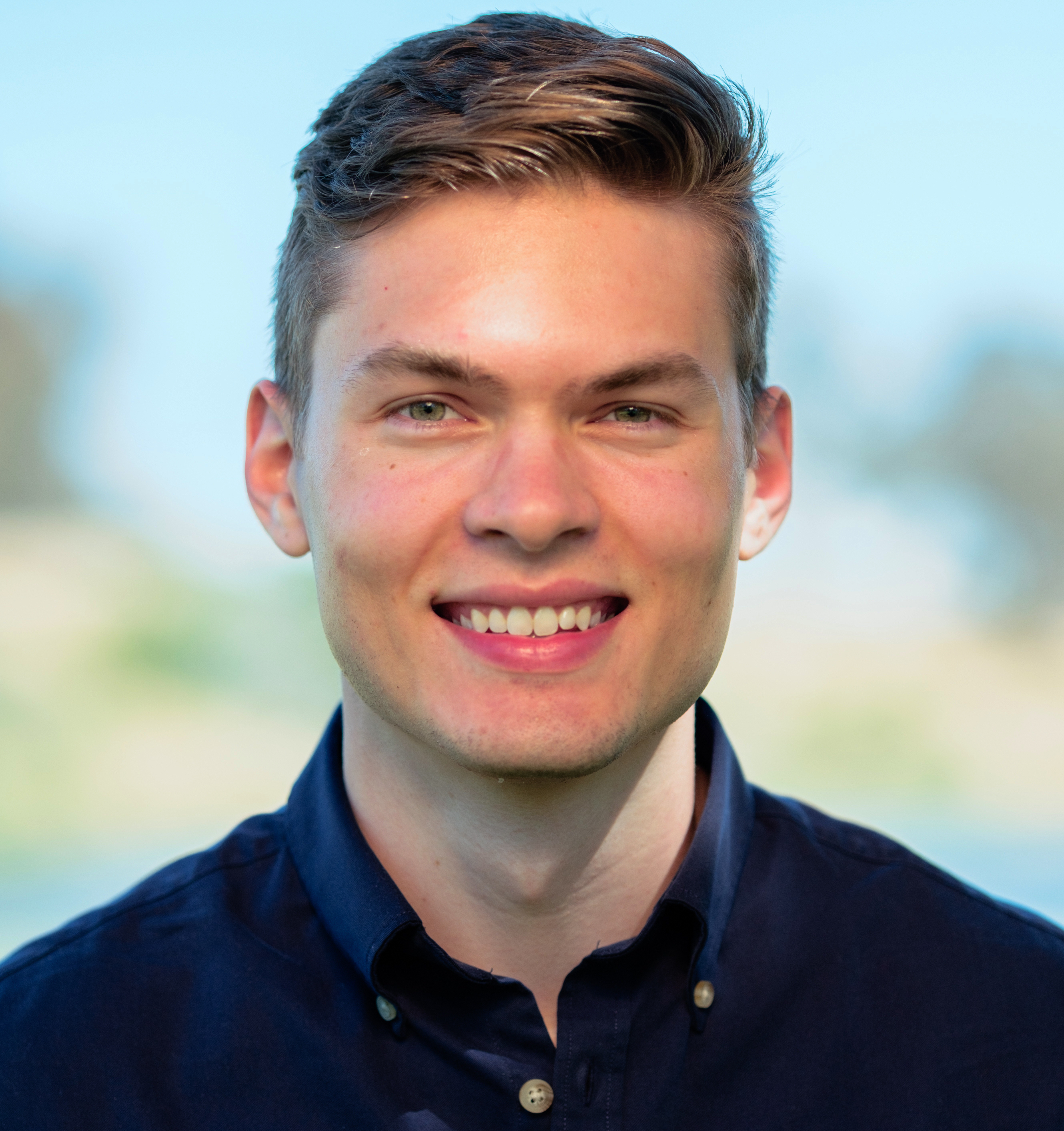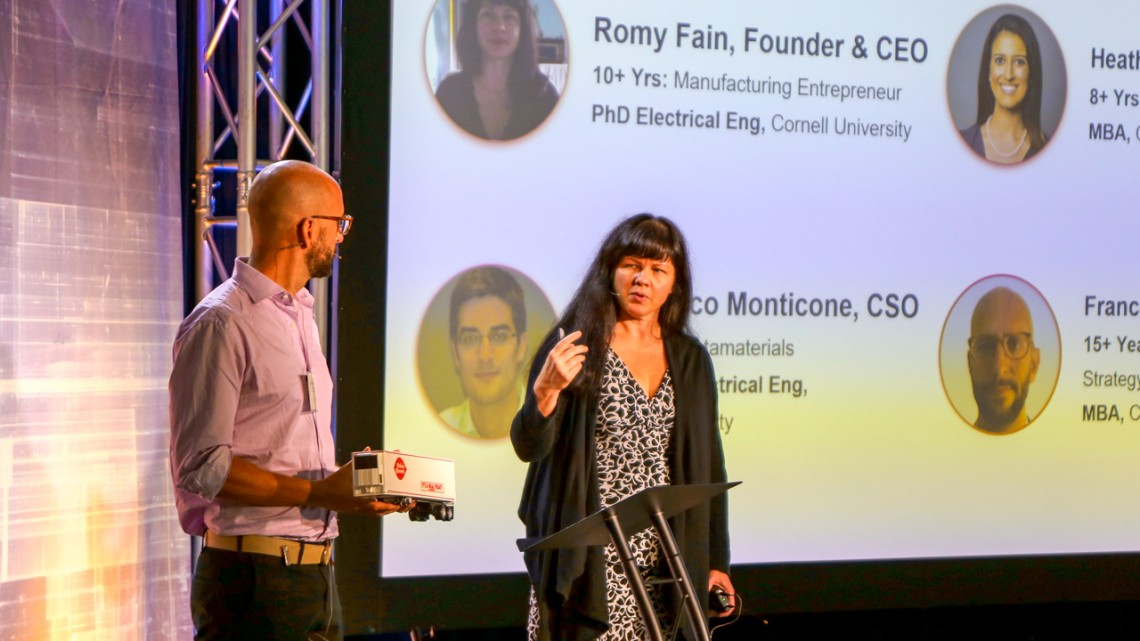
The Journey to Commercialization at Cornell
By Casey Verderosa
Engineers regularly simulate technologies with high-impact potential in the lab. For some, the way to get their tech out into the world is through the often-unfamiliar roller coaster ride of commercialization.
Entrepreneurship can be full of ups and downs—learning that the target market you identified was all wrong, having to adapt your product to fit demand, and making hundreds of pitches before you obtain funding. It can be like running a marathon, getting to mile 15, and realizing you have to go back to the starting line and do it all over again.
Scientists who may not have entered their fields with entrepreneurial goals might feel like they’re playing catch-up. In recent years, Cornell Engineering – and Cornell University as a whole – have developed a suite of commercialization resources so that Cornellians with great ideas can delve fully into the world of entrepreneurship, no matter their starting point. PitchBook recently ranked Cornell sixth in the nation in its 2019 list of universities producing entrepreneurs backed by capital.
Within Cornell Engineering, undergraduates can begin with the Engineering Innovation Competition, where teams with physical prototypes vie for prizes to support the next step toward development of their business idea. Graduate students may also compete, as long as the majority of team members are undergraduates. Junior STEM students can apply to the Kessler Fellows program and engage in a semester-long immersion into entrepreneurship, followed by a summer experience with an existing startup.
A new entrepreneurship minor was launched in 2019 to meet the needs of doctoral engineering students seeking business acumen to complement the development of their advanced technologies. Also open to engineering Ph.D. candidates is the Commercialization Fellows program. Students in this program explore commercialization opportunities for their technology in partnership with a mentor over the course of a fully-funded semester and summer.
Cornell Engineering’s Scale Up and Prototype Awards provides funding to Cornell students, postdocs, and faculty to create a functioning prototype or scale up an already-developed technology that is not quite ready for commercialization.
Cornellians who have taken advantage of these and other entrepreneurship opportunities on campus are out to change the world with innovative technologies. The paths they take on their journeys to commercialization are many and varied.
Founding a company before graduation
Kais Baillargeon ’20, Nolan Gray ’19, and Keivan Shahida ’20 centered their academic careers on engineering and entrepreneurship. The three began working together during their sophomore year, when they participated in the Engineering Innovation Competition. At the time, they were developing a mobile app to improve communication between humanitarian-aid organizations and donors.
A summer business incubator experience through Cornell’s student-run Life Changing Labs shifted the team’s focus. “In the process of speaking with people in the humanitarian sector, they said the real challenges for them are in procurement—in how they spend that money raised,” said Shahida. “We wanted to use our technical backgrounds to help these nonprofits.”

Gray and Shahida, both computer science majors, and Baillargeon, studying operations research and information engineering, started laying the groundwork to digitize the procurement process for aid organizations. According to the team’s interviews with humanitarian groups, procurement in this sector is focused on finding the best quality products for the best price, making efficient use of donated dollars. This monetary efficiency compromises efficiency in time, since finding the right product can take weeks on end. Further slowing the process down is the fact that it’s also mostly done on paper and by email.
When a hurricane hits or drought causes a famine, it’s important for aid groups to get supplies on the ground quickly. The trio’s company, Response, hosts a digital platform that automatically generates bid-offer forms and vendor questionnaires, evaluates bids instantly, and ensures compliant sourcing.
In their junior year, the team joined Cornell’s eLab accelerator for student businesses. There, they conducted another 100 customer interviews. With support from the university, they were able to travel to a humanitarian conference, AidEx, in Brussels, Belgium, attended by thousands of procurement officers. To date, the company has interviewed over 200 people from more than 40 countries.

“After eLab we were also fortunate to receive support from the Kessler program as well as the Beck Fellowship program, which enabled us to spend a summer in Washington, D.C., where many aid organizations are headquartered,” said Gray.
As Response pilots its platform with humanitarian organizations, it has also identified a crisis where its product is uniquely positioned to provide assistance: the COVID-19 pandemic. The team has been busy creating a special platform to connect health care providers with medical suppliers to source items like gloves, face shields and ventilators.
Sometimes it takes a good butt-kicking
Electrical and computer engineering Ph.D. student Austin Hickman knew he wanted to get involved in some sort of business experience. He talked to his advisor and enrolled in a managerial finance course. From there, he took his academic research and springboarded into the Commercialization Fellows program.
Hickman’s research is based on developing an aluminum nitride (AIN)-based power transistor with the ability to produce millimeter-wave-frequency signals at a higher power than what is currently used in amplifiers. This is significant for defense radar systems and telecommunications, since the signals can travel farther than what is possible with existing technology. The scale of application of AIN-based amplifiers may be largest in the global race to develop 6G (sixth-generation wireless) networks.
“Once I got the Commercialization Fellowship, from there things really took off,” said Hickman. A key component of the fellowship is participation in the National Science Foundation Innovation Corps (I-Corps) program. Cornell is one of three universities that comprise the Upstate New York I-Corps Node.
A trademark of I-Corps is a customer discovery process in which aspiring entrepreneurs interview potential customers to learn how well their product meets demand in their target market. “You kind of get your butt kicked in that program but it helps you catch up really quickly in terms of what matters to businesses,” said Hickman.

Hickman’s technology has led to the establishment of a company, Soctera, where he is vice president of defense business. Through the course of customer interviews, he discovered that although there was interest from telecommunications companies in his product, they typically prefer to wait for production costs to come down before pursuing new technology. Because of this, the company is first focusing on the defense industry, which prioritizes emerging technologies, but would like to return to the telecommunications space in the future.
Soctera recently won a Scale Up and Prototype Award, which it will use to ensure consistent performance across all manufactured products as it scales. The company was also the recipient of a Cornell Technology Acceleration and Maturation award, the funds from which it will put toward licensing a commercial amplifier.
Additional members of the Soctera team are doctoral student Reet Chaudhuri M.S. ’16, as well as Huili Grace Xing, the William L. Quackenbush Professor of Electrical and Computer Engineering and Debdeep Jena, David E. Burr Professor of Engineering in Electrical and Computer Engineering and of Materials Science and Engineering.
Post-commencement, a startup is born
Romy Fain, Ph.D. ’17, originally thought she would move back to San Francisco after earning her doctorate. While studying electrical and computer engineering at Cornell, she had developed a thin film that produces cooling temperatures without generating any waste heat. Realizing the technology would be a boon for the traditionally energy-intensive cooling and refrigerant industry, Fain started to work on commercializing her research. She remained in Ithaca, where she found that the entrepreneurial resources and incentives in New York’s Southern Tier region made it “a fantastic place to start a business.”
In the battle against climate change, Fain’s tech startup, Heat Inverse, is aiming to revolutionize cooling technologies and reduce greenhouse gas emissions. The company was a semifinalist in the 2019 76West Clean Energy Competition hosted by the New York State Energy Research and Development Authority.
Through the customer discovery process her company underwent as part of an NSF I-Corps short course, she narrowed down her initial market to the refrigerated trucking industry. By applying Heat Inverse’s films atop transport trailers, the company reduces carbon dioxide emissions and saves trucking companies 25% in fuel costs for refrigeration in transit.
Heat Inverse is also a member of Rev: Ithaca Startup Works, the city’s business incubator that was co-created by Cornell, Ithaca College, and Tompkins-Cortland Community College. There, the company is part of the Prototype to Production cohort, enabling the scale up of its materials to large area format extrusions.

Fain will be participating in I-Corps a second time as part of a cohort of other NSF Phase I Small Business Innovation Research awardees, for a deeper investigation of markets relevant to her business in its current stage. “Cooling is something that can go in so many different directions,” she said. “Everyone could be a customer.”
Amid the COVID-19 crisis, however, Heat Inverse is focusing on other ways it can help. Fain is assisting the Ithaca community in its effort to cobble together resources (including “a small army of 3D printers”) to produce more personal protective equipment for health care workers and is collaborating with other tech companies around the country in an endeavor to quickly manufacture a better N95 mask.

